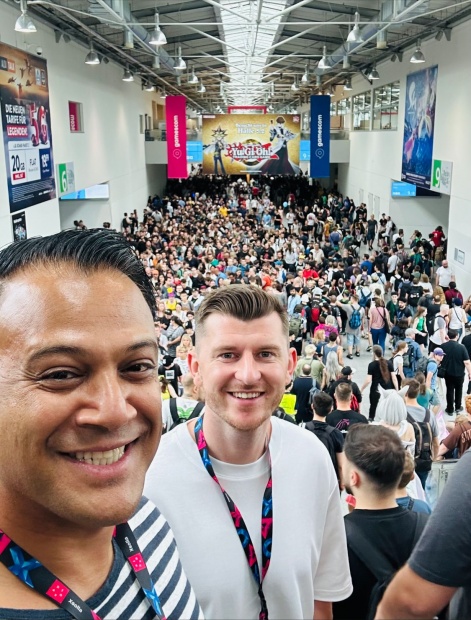The video game industry has come an incredibly long way, from a niche hobby to an industry bigger than Hollywood. The technology we use to create and play these games is more powerful with each new generation, and the market is incredibly competitive, with masses of creative professionals looking for their big break.
Given how the industry has grown and the need to keep up with demand, we often get caught up in the daily grind and forget about one it's most crucial aspect: the gamers
In this guest post, Raptor PR’s founder and managing director, Rana Rahman, shares his insight into looking beyond the data and seeing and addressing the needs of the fans.
Are you a gamer who works in the games industry? Or someone who’s adopted the games industry purely professionally? It doesn’t matter, of course, as long as you can do the job you’re hired for. Hell, one of my best performers isn’t a gamer by any stretch of the imagination, and this individual is killing it in comms for one of our flagship publisher clients.
Whether you’re a gamer or not, you still need to learn the sector and understand the people who play games.Rana Rahman
But whether you’re a gamer or not, you still need to learn the sector and understand the people who play games.
I think there’s a tendency in this business, from people with any of these backgrounds, to forget about the excitement that games bring and just focus on the data. In the games industry, the proliferation of analytics and data tools and providers means publishers can track everything a player does in-game. That includes anything from their progress and session times to their spending habits, pain points and the exact moment they churn. All of this gets reported back on an individual and overall player level to find trends.
This enables publishers to refine the experience through updates, as it gives them an understanding of some of the issues impacting the experience and their key performance indicators.
This data can also be used for personalisation, creating an experience that matches an individual user's tastes and habits. For example, machine learning can be used to offer individual players specific deals from the in-game shop tailored to them and surfaced at a time when they are most likely to make a purchase.
This personalisation can also improve the game experience dynamically, such as ramping up difficulty if the player is breezing through or quieting down the action if they are struggling or have recently faced significant waves of enemies.
The entire mobile games industry is basically built on this data, helping to improve monetisation, live ops and the foundations of it all: user acquisition. Such is the reliance on this that Apple’s privacy changes to app tracking transparency (ATT) have shaken these foundations to their core, leading to a market revenue decline.
The industry should be careful not to lose sight of the end users as real people.Rana Rahman
In 2022, market intelligence firm data.ai reported that global mobile game consumer spending declined by 5% year-over-year to $110 billion, the first yearly decrease ever. One top casual and social casino publisher, Playtika, even announced earlier this year its decision to halt new game releases until current market conditions improve. Ouch.
It’s well-known in the industry that having good data is key to driving success, particularly in the long term. But with all this reliance on analytics, the industry should be careful not to lose sight of the end users as real people. They should not be viewed as mere data points on a spreadsheet or pretty charts from Newzoo.
First-hand engagement
This issue became apparent to me during my visit to Gamescom this year - and, frankly, many other shows in the past. Many of the trade visitors actively avoid the consumer halls, claiming they are too busy. That’s understandable; conferences are immensely busy for people in the business. Others simply just don’t want to do it at all.
But this is a mistake. Time should be made to walk the show floors and take in the games and atmosphere, to engage with an event through a gamer’s eyes, and not just as a business. Trade visitors should make time to game, and if you can, chat with some gamers at the show to see what really interests them and discover what they want and even why they’ve made the trip. After all, it’s not exactly cheap to attend these shows!

Data is indeed important, but let’s not forget without the gamers, we’d be utterly screwed.Rana Rahman
If you’re a gamer yourself, make sure you’re taking the time to enjoy the show you’re attending, remembering why you’re a fan in the first place. And if you don’t play games, it’s a great time to soak up the community atmosphere by joining them in the show halls.
As Social First CEO Kim Soares put so succinctly, “The true spirit and essence of games is not found in the lobbies of five star hotels. It is found in the hot, sweaty, crowded and awesome halls of gamescom.”
Being immersed in the world of gamers adds immeasurably to our understanding of audiences. Seeing the passion, dedication and sheer love for gaming first hand is invaluable. It can only improve the games this industry makes.
Data is indeed important, but let’s not forget without the gamers, we’d be utterly screwed.
Edited by Paige Cook






















